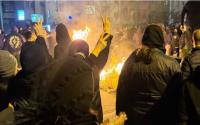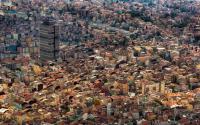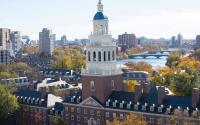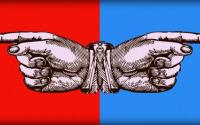By Yosuke Watanabe
CAMBRIDGE, March 1, Kyodo - Noam Chomsky, a linguistics professor at the Massachusetts Institute of Technology (MIT), is world-famous as the originator of the ''Transformational Grammar'' theory, a framework of principles accounting for all language-specific rules. Since his participation in campaigns against the Vietnam War in the 1960s, Chomsky has also been well-known for his long career of criticism of U.S. politics and foreign policy. In his MIT office in Cambridge, Massachusetts, there were foreign language translations of his books, including Japanese editions. With his back to a blackboard on which linguistic charts were scribbled, Chomsky unsparingly criticized the ''double standards'' of the U.S. on terrorism in a quiet tone of voice. Following are excerpts of the interview. -- How did you feel about the Sept. 11 terror attacks? I felt the same way everybody else did -- it was an unbelievable attempt of a major criminal atrocity and an unbelievable event -- the same horror everyone else felt. On the other hand, I couldn't help reacting the same way people in most of the world reacted...it happened to you but we are used to it. So, for example, a journalist in Panama right away said you know this is a horrible atrocity, but in one bombing raid in December 1989, the U.S. air force killed about that many people. In Nicaragua, the Jesuit University has a research journal -- its issue came about a month later. It said you know this is like Armageddon. But it said we are familiar with our own Armageddon and it referred to the U.S. terrorist war which killed tens of thousands of people and devastated the country. -- Some people say the Sept. 11 terror attacks have changed the world. The United States declared a war on terrorism right after Sept. 11 but that was the second war on terrorism. The first one was declared 20 years earlier when the Reagan administration came into office and it was declared in very much the same terms. And in fact the same people were involved. So the current secretary of defense was Reagan's special envoy to the Middle East, which was regarded as the center of international terrorism. What were the worst international terrorist actions in the Middle East in that year, when (Donald) Rumsfeld was a special envoy? The worst one was a car bombing in Beirut right outside a mosque, which was timed in order to kill the maximum number of people as they left the mosque. It killed 80 people and wounded 250 others, mostly women and children -- killed babies in their beds -- you know a horrible event. Who did that? Well that was done by the CIA with the cooperation of British intelligence. And in fact the people responsible are now leading the war against terrorism. How can this be? Well, very simple. The word terrorism doesn't mean terrorism. -- How do you define terrorism? What it means is terrorism that others conduct against us...it's terrorism if somebody does it against us but not if we do it against somebody else. If we do it against somebody else, it's not terrorism, it's counterterrorism or defense or something like that. -- U.S. State Department spokesman Richard Boucher says terrorism is defined as the killing of innocent people for political purposes. I think that definition is a fine definition. But you can't use that definition because if you use that definition it turns out that the United States is a leading terrorist state, that other powerful states are terrorist states... If honesty was allowed to prevail, we would all recognize that states are terrorist agencies. That includes our own states. And the more powerful they are, the more terrorists there usually are. The press doesn't accept it. And intellectuals don't accept it. That's because they are all dishonest. Remember that the most serious form of terrorism is state directed terrorism. And in fact you know it's commonly said that terrorism is a weapon of the weak. It's totally false. I mean like other weapons it's primarily a weapon of the strong. -- Do you deny every form of violence? I think acts of self-defense are legitimate. I'm not a pacifist. For example, I think it was completely correct for the United States to react to Pearl Harbor. And I think the U.N. Charter -- you can raise questions about it -- but it's a pretty reasonable instrument. It authorizes the use of violence in two circumstances: one, authorized by the Security Council; two, in self-defense against armed attacks until the Security Council can act. That's reasonable. -- Can't the U.S. response to the Sept. 11 attacks be called the act of self-defense? It wasn't self-defense. When the United States starved Afghan civilians to death, that's not self defense. When hundreds of thousands of Afghans are driven out of ghost towns which are being wiped out, and are starving out in the hills somewhere, is that self-defense? All international aid agencies -- the United Nations and others -- said at once this is going to put hundreds of thousands or maybe millions of people at risk of death from starvation and exposure and disease. And they pleaded with the United States to stop the bombing, which was rejected. -- How should the U.S. have responded? There is a proper response to criminal acts. You can read the current Foreign Affairs, the leading establishment journal. There's an article there January issue by Michael Howard, who is the preeminent Anglo-American military historian. He says in the case of a criminal atrocity, you carry out a police investigation, an international police investigation to find who is responsible. When you think you have found them you go to international authorities to endorse measures to apprehend them. Force if necessary. You then bring them to trial in a fair trial in an international tribunal. These are proposals that say that we should act like decent human beings -- observing international law and our treaty obligations. And I agree with that. -- But such procedures were not taken by the U.S. Never happened because, for one thing, the United States refused to present any evidence. And it refused to pursue the possibility of extradition. Just hand him (Osama bin Laden) over. Now no country does that. If the United States wanted a clear unambiguous authorization from the Security Council (for use of force), it could get it. It refused because it doesn't want authorization just as it does not want extradition. There's a reason for that. If you are the most powerful state in the world you want to make it clear to everybody that you don't need authorization. Suppose you are a Mafia don and you want to collect money from somebody. You don't ask for a court order. Even if you could get a court order you wouldn't ask for it because you don't want it. You want people to understand that you are going to get it by force. There's even a name for that in the literature of diplomacy and international affairs -- it's called establishing credibility. What does credibility mean? Well, credibility means everybody better be afraid of you. They better be afraid that if they don't do what you tell them, they are going to be in trouble. -- Isn't credibility sometimes needed? The U.S. is often called the world's police force. You don't call the mafia the police force. Is the United States keeping order in the world? Is that what it's doing when it invaded Vietnam or supported Turkey in the late 1990s when it was massacring Kurds or when it was supporting Indonesians in East Timor, when it's bombing Afghan civilians, is that keeping order? What is happening in the world is the powerful states do what they want. -- What was the cause of the Sept. 11 attacks? First of all we have to make two distinctions between the perpetrators of the act and the background of sympathy and support that they might have. Those are very different things. They (moderate Muslims in the Middle East) say very much the same things. They say the United States is opposing democracy, it's supporting brutal and oppressive and corrupt regimes. It's preventing independent economic development. It's devastating the civilian population of Iraq while supporting, strengthening Saddam Hussein. Everybody recognizes that. -- What's the solution to this incident? The right answer was to find the criminals, bring them to justice and deal with the background problems. Because there were background problems, real problems. There were grievances and they should be dealt with independently of terror. That's the right answer. Biographical Notes: Noam Chomsky, born Dec. 7, 1928, in Philadelphia, Pennsylvania, received his PhD from the University of Pennsylvania in 1955 and jointed the faculty at MIT the same year. His ''Transformational Grammar'' theory, which attempts to find principles and rules common to all kinds of languages, has made him a legendary figure in the field of linguistics. The history of linguistics is often classified as before Chomsky (B.C.) and after Chomsky (A.C.). His name has become synonymous with genius in the U.S. Chomsky is also well-known as a critic of modern society and politics, voicing strong opposition to the Vietnam War and U.S. intervention in Nicaragua and Panama. In the United States, he is often regarded as a left-winger or liberal. He has consistently opposed rule by the power of the state and advocated the importance of individual freedom. In November, Chomsky published a book titled ''911'' to criticize the U.S. response to the Sept. 11 terror attacks.






